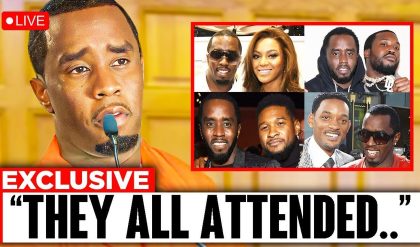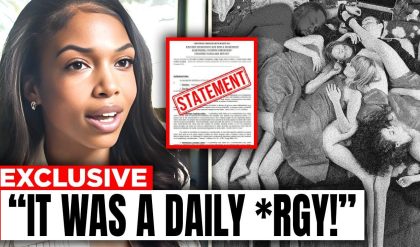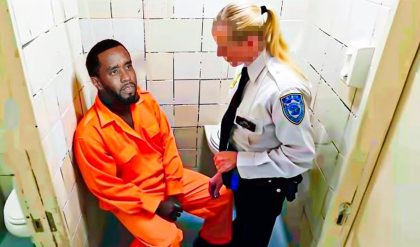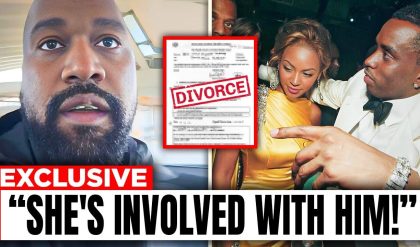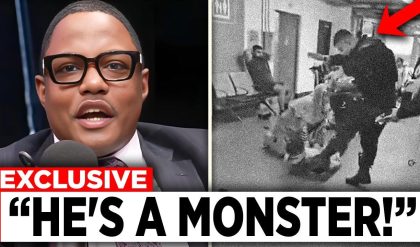In a world where celebrity interactions often create sensational headlines, the recent live interview between Piers Morgan and Oprah Winfrey has taken center stage. Known for his provocative style and unabashed opinions, Piers Morgan delivered a stark warning to the iconic media mogul during their candid conversation. This exchange not only highlighted their contrasting styles but also raised important questions about media ethics, celebrity responsibility, and the impact of public discourse. In this article, we will delve into the details of this electrifying interview, the history between Morgan and Winfrey, and the implications of their exchange for both individuals and the broader media landscape.

Background: Who Are Piers Morgan and Oprah Winfrey?
Piers Morgan
Piers Morgan is a British journalist, television presenter, and former newspaper editor known for his forthright opinions and controversial statements. Over the years, he has built a reputation for sparking debates on various topics, often challenging the views of his guests and the general public. Morgan’s career has spanned several media platforms, including newspapers, television, and social media, where he continues to be a polarizing figure.
Oprah Winfrey
Oprah Winfrey, on the other hand, is a global media icon and philanthropist renowned for her empathetic approach to interviews and her commitment to addressing social issues. Her career has encompassed television, film, and publishing, making her one of the most influential figures in contemporary media. Winfrey is celebrated for her ability to connect with people from all walks of life, often using her platform to promote positive change and inspire others.
The Live Interview: A Clash of Styles
The live interview took place on a prime-time television show, drawing significant attention from audiences worldwide. The atmosphere was charged as Piers Morgan and Oprah Winfrey engaged in a candid discussion about various topics, including their views on media ethics, public figures, and the responsibility that comes with fame.
Initial Tension
From the outset, it was clear that the conversation would be anything but ordinary. Morgan’s direct and often confrontational style contrasted sharply with Winfrey’s more measured and empathetic approach. The initial tension set the stage for what would become a heated exchange.
Challenging Questions: Morgan wasted no time in posing challenging questions to Winfrey, questioning her role as a media figure and the impact of her interviews on public discourse. He asked, “Do you ever feel responsible for the narratives you create? How do you reconcile that with the power you wield?”
Winfrey’s Defense: Winfrey responded thoughtfully, emphasizing her intention to empower her guests and provide them with a platform to share their stories. “My goal has always been to create a safe space for people to express themselves. I believe in the power of storytelling to heal and inspire,” she replied.
The Warning: Piers Morgan’s Stark Message
As the conversation progressed, Morgan’s tone shifted, and he delivered a blunt warning to Winfrey that reverberated through social media and news outlets.
The Content of the Warning
Call for Accountability: Morgan warned Winfrey about the dangers of being too lenient with her guests, suggesting that she should hold them accountable for their actions. “You have a responsibility to challenge your guests, not just give them a platform. If you don’t, you risk perpetuating false narratives,” he stated firmly.
Implications for the Media: He further elaborated on the implications of unchecked narratives in media, asserting that celebrities must face scrutiny for their words and actions. “The media is a powerful tool, and with that power comes a responsibility to ensure that truth prevails over sensationalism,” he added.
Winfrey’s Reaction: Winfrey appeared taken aback by the intensity of Morgan’s warning but remained composed. She defended her approach, stating that her style has always been about fostering dialogue rather than confrontation. “I believe in creating conversations that allow people to grow and learn. That’s my approach, and I stand by it,” she responded.
The Aftermath: Public Reactions
The interview quickly went viral, with viewers and media outlets reacting to Morgan’s warning and Winfrey’s response. Social media exploded with opinions, highlighting the polarized views surrounding both figures.
Support for Morgan
Critics of Winfrey’s Style: Many social media users and commentators expressed support for Morgan, agreeing that Winfrey’s approach could sometimes lead to a lack of accountability among her guests. Tweets such as “Finally someone is holding Oprah accountable!” reflected the sentiment of those who believed Morgan’s warnings were warranted.
Discussion on Media Responsibility: Morgan’s emphasis on accountability sparked discussions about the role of media figures in shaping narratives. Numerous commentators argued that all journalists should adopt a more critical stance toward public figures, regardless of their status or reputation.
Support for Winfrey
Defenders of Empathy: On the other hand, Winfrey’s supporters praised her empathetic approach to interviews. Many emphasized the importance of creating safe spaces for vulnerable individuals to share their stories without fear of judgment. “Oprah’s strength lies in her compassion; we need more of that in media,” one user tweeted.
The Complexity of Media Ethics: Supporters also highlighted the complexity of media ethics, suggesting that while accountability is essential, empathy and understanding are equally vital. “There’s a balance to be struck between holding people accountable and allowing them to share their truth,” another commentator remarked.
Analyzing the Broader Implications
The exchange between Morgan and Winfrey raises broader questions about the responsibilities of media figures in shaping public discourse and the ethical considerations that come into play when interviewing influential individuals.
The Balance of Empathy and Accountability
Understanding Different Approaches: The contrasting styles of Morgan and Winfrey illustrate the diverse approaches within journalism and media. While some prioritize hard-hitting questions and accountability, others focus on creating empathetic dialogues. Both methods can be valid, depending on the context and the goals of the interview.
The Role of the Audience: The audience plays a crucial role in shaping the conversation around media ethics. Viewers must critically engage with the content presented to them, holding both media figures and public figures accountable for their actions and words.
The Responsibility of Media Figures: The exchange highlights the increasing need for media figures to recognize their influence and the power dynamics at play in interviews. Whether it’s a celebrity sharing their story or a politician making claims, the responsibility to ensure accurate representation and accountability lies with the interviewer.
Conclusion
Piers Morgan’s brutal warning to Oprah Winfrey during their live interview has ignited a firestorm of discussion regarding media ethics, accountability, and the role of empathy in journalism. The contrasting styles of the two media giants underscore the complexities of modern reporting and the delicate balance between challenging narratives and fostering open dialogue.
As public figures wield immense influence over public perception and discourse, the responsibility to prioritize truth, accountability, and empathy is more critical than ever. The fallout from this interview serves as a reminder that the media landscape is continually evolving, and both media figures and audiences must adapt to these changes.
In a world where narratives shape perceptions, the importance of maintaining integrity in journalism cannot be overstated. As we reflect on the lessons learned from Morgan’s warning and Winfrey’s response, it becomes clear that the future of media lies in a commitment to fostering honest, transparent, and responsible discourse.
